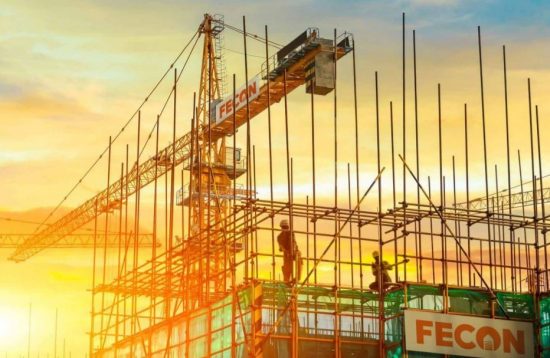
Notes for establishing a foreign-invested construction company in Vietnam
When doing business in construction services in Vietnam, foreign investors need to pay attention to the following issues in order for the business to run smoothly and effectively.
1. Conditions on market access restriction
Construction is a conditional business line as prescribed in Appendix IV of the 2014 Investment Law. In the free trade agreements to which Vietnam is a member, our State commits to open no limited on the mode of commercial presence for the following sub-sectors:
- General construction work for building (CPC 512).
- General construction work for civil engineering (CPC 513).
- Installation and assembly work (CPC 514, 516).
- Building completion and finishing work (CPC 517).
- Other (CPC 511, 515, 518).
This means that when entering the Vietnamese market, foreign investors are not limited in terms of capital contribution and investment forms. According to Vietnam’s general commitment on trade in services when it joined the WTO, investors in the construction industry can provide services in three ways:
- Business cooperation contract with Vietnamese partners.
- Joint venture with Vietnamese partners.
- Enterprises with 100% foreign capital.
In addition, the foreign investor must be a legal entity established under the regulations of the country where the head office is located.
2. Investment approval of the competent authority
Some projects that affect socio-economic aspects or have strong impacts on the environment will have to receive investment approval from state agencies. Depending on the size and nature of the project, the competent authority to consider may be the National Assembly, the Prime Minister, or the People’s Committee of the province.
3. Conditions on organization of work construction
To be able to register for business in the field of construction sector in Vietnam, a foreign enterprise must meet the following conditions:
- Having full capacity for construction activities corresponding to types and grades of construction works.
- Site commanders have appropriate expertise and capacity for construction practice.
- Having construction equipment that meets requirements on safety and construction quality.
Regarding personnel, depending on the class of the investment project, the enterprise’s personnel must satisfy the following requirements:
Rank I:
The chief commander has a Class I construction supervision practice certificate or has worked as a construction site commander in the field of at least 01 Class I construction work or 02 Class II works in the same field. above.
The individual in charge of execution of a specialized field shall obtain a bachelor’s degree or Level 5 of VQF Advanced Diploma relevant to his/her tasks, and has a work duration of at least 03 year and 05 years with respect to the holder of the bachelor’s degree and Level 5 of VQF Advanced Diploma respectively.
Rank II:
The chief commander has a Class II certificate of construction supervision practice or has worked as a site commander for a part of the work within the scope of practice of at least 01 Class II work or 02 Class III works in the same field.
The individual in charge of execution of a specialized field shall obtain a bachelor’s degree or Level 5 of VQF Advanced Diploma relevant to his/her tasks, and has a work duration of at least 01 year and 03 years with respect to the holder of the bachelor’s degree and Level 5 of VQF Advanced Diploma respectively.
Rank III:
The chief commander has a Class III certificate of construction supervision practice or has directly participated in the construction of jobs falling within the scope of practice of at least 01 Class III work or 02 Class IV works together with a Class III construction supervisor. field and above.
The individual in charge of a specialized field shall obtain a bachelor’s degree or Level 5 of VQF Advanced Diploma relevant to his/her tasks